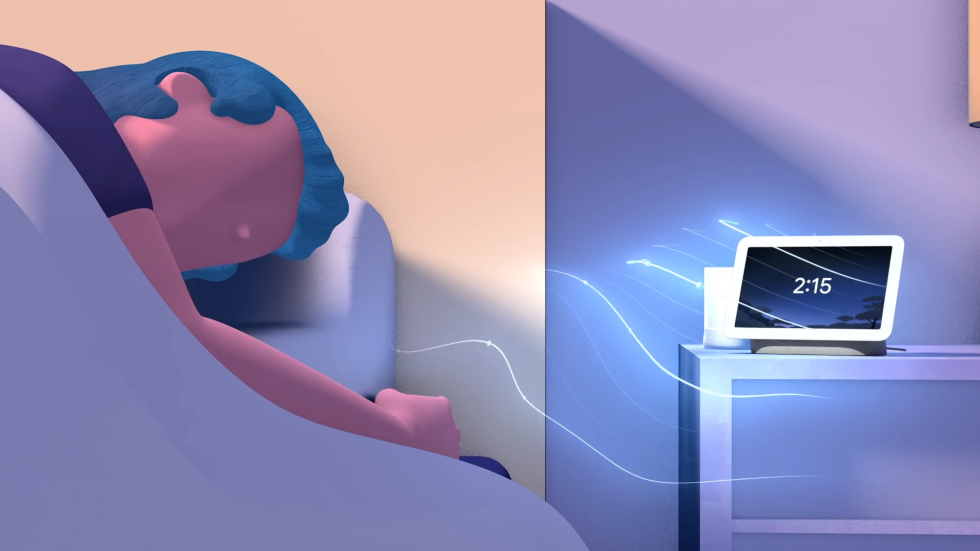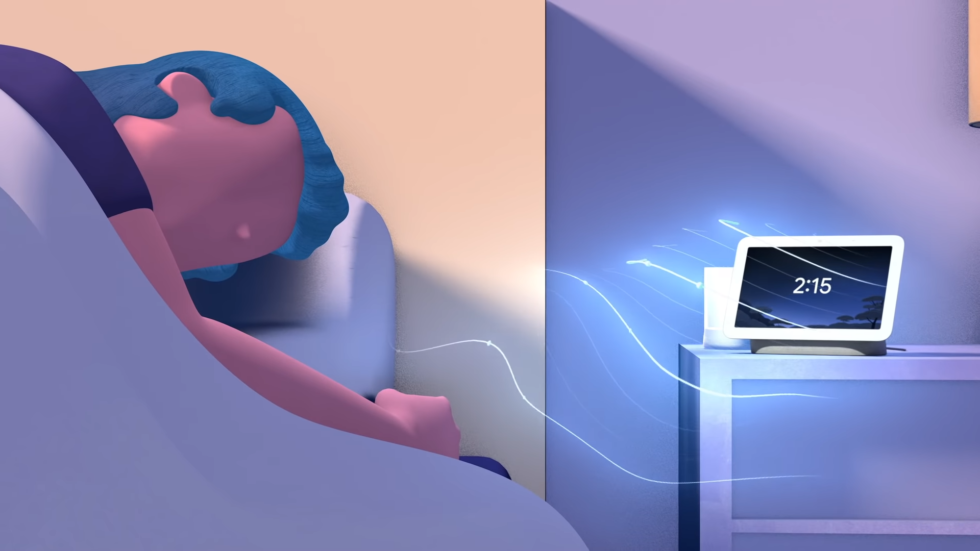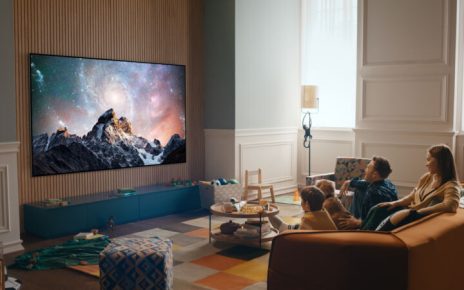-

The Nest Hub blasts radar waves all over an unsuspecting sleeper. [credit: Google ]
Google has announced a sequel to the Nest Hub (formerly the Google Home Hub): the “second-generation” Nest Hub. It looks exactly like the existing Nest Hub—with the same design and 7-inch display—but with better sound and a few extra sensors. The headline feature is the inclusion of Google’s Soli Radar technology, which enables air gestures and sleep tracking.
Like the other second-gen Nest Audio speakers, the Nest Hub 2 has better sound. “The new Nest Hub’s speaker is based on the same audio technology as Nest Audio,” Google’s blog post says, “and has 50 percent more bass than the original Hub.” Also like the second-gen speaker hardware, the new Hub comes with “a dedicated on-device machine-learning chip which moves some Assistant experiences from our data centers directly onto the device, so responses to common commands become faster over time.” Google notes that the on-device ML is available in the US only.
Soli is the main new addition. Google’s in-house chip was previously included on (and then removed from) the Pixel line. The technology is interesting: Google miniaturized radar into a chip small enough that it could be shoved into an electronic device. The early demos promised to capture “sub-millimeter motions of your fingers,” allowing for gestures like spinning a virtual dial or tapping a button. In the path to commercialization, Google had to cut down these lab prototypes, and now Soli can only detect big, arm-waving gestures, which are a lot less useful. Soli was a flop on the Pixel 4 because it offered inaccurate gestures that didn’t provide much value compared to the giant touchscreen on a phone, which had clear labels and better accuracy.





